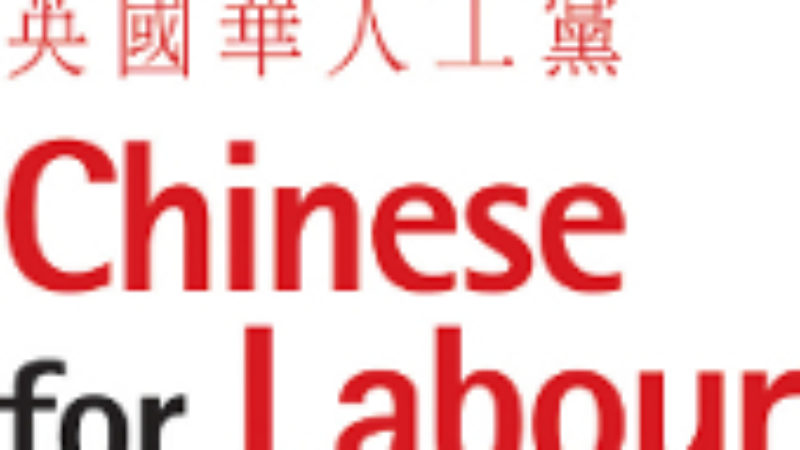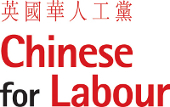
This article is from Our Labour, Our Communities – a pamphlet of 10 essays by Labour PPCs, published by LabourList in partnership with Lisa Nandy MP.
I am proud to be standing as the candidate for my hometown of Hastings & Rye, but I am equally proud to
stand as a parliamentary candidate who is also half Chinese and half British.
My mother is Chinese Malaysian and came to this country 41 years ago to be a nurse in Hastings and continues to work at our local hospital. People like my mother, are part of the of the third largest ethnic minority in the UK; the British Chinese. We are also one of the fastest growing communities and contribute a lot to this country, so but there are no Chinese faces in our parliament. Until now, no parties have fielded candidates of Chinese descent in winnable seats, hopefully this will change with both I and Rebecca Blake for Redditch working hard in marginal constituencies.

Over the last few years, Chinese for Labour led by Sonny Leong have done an incredible amount of work raising the profile of Chinese people in the Labour movement but during interviews, Chinese journalists often ask the same questions – Why aren’t more Chinese Britons involved in politics? And the big one, what difference would it make to have the first Chinese MP? But with China’s dominant role in the global economy, appalling record on human rights and the increasing British Chinese population, these are questions we should all be answering.
Outside of Asia there have been East Asian national politicians at the highest levels in Australia, New Zealand, Canada and the USA for many years. In fact Germany recently had and France currently has a Cabinet member of East Asian origin. Labour used to blaze the trail with representation in London local government with fantastic councillors like Mee Ling Ng, Soon Hoe The and Ashton McGregor. This should have been a fantastic foundation to build on, but nationally we’re slipping back and you can now count the number of Chinese councillors on one hand.
Why aren’t more Chinese Britons involved in politics?
Some of that blame rests on the shoulders of the British political and media landscape, where the Chinese community is often left voiceless and ignored. The language used to define BAME and British Asian communities does not resonate with most Chinese voters; we do not see ourselves as ‘Asian’ in the sense that most political and media outlets portray us – we are British Chinese or East Asians and it is very important that we are spoken to and identified as such.
On the flip side, I have experienced genuine cultural issues when it comes to involving Chinese people in politics. One prominent British Chinese business figure highlighted some of those cultural differences during a recent meeting; being humble and showing humility is a cultural must, which goes very much against the characteristics of western politics. Strict traditional roots from the homeland still haunt many Chinese generations; for example, when one person nails their political colours or thoughts to the mast, their entire family are also held to those beliefs.
What I am about to write might not be popular, but it has a lot to do with upbringing, including my own. For
many Chinese families, there is still a strong focus for their children to succeed in life and to progress – whether you see that manifesting itself in the tokenistic ‘Tiger mum’ behaviour or just a supportive, loving family who want the best for their children is a separate argument. But if you wanted the best life, in terms of status and earning capabilities, then why would any parent of any ethnicity encourage their child in to the current political environment? Journalists and the general public hold little respect for most politicians and the average earning potential is usually less than that of the highest achieving lawyers or doctors. This attitude towards our democratically elected lawmakers seems almost unique in the world. I hold our British cynicism and ability to mock the highest powers very dearly as it keeps our feet firmly on the ground and is often rightly funny, but the level of disdain is palpable. This level of public criticism heightens any cultural fears and instinct to stay out of the limelight, leaving us largely unseen in politics and the media.
What difference will it make?
With over half a million East Asians living in the UK we should have more than just one MP in parliament, the fact that we have none is an indictment on British politics and the Chinese community. I think we should recognise that the East Asian population in the UK is diverse, with an ever increasing population of Malaysians, Singaporeans, Indonesians and Filipinos adding to the wonderful mix. There are well established China Towns which tend to have a city centre focus, as well as those communities spread across the country that see themselves as more part of the UK mainstream society who also want their community to improve and succeed. The announcements from Labour on rate relief for small businesses, the increased staffing for the NHS and apprenticeships should be welcome news to the thousands of Chinese small business owners, NHS workers and families here in the UK. That isn’t necessarily because they are Chinese, but because they care about where they live.
No one can tell you the changes that having more Chinese people involved in our local, national and European politics might make, but the damage of not having representation can be seen right here, right now – We have heard of increased racial attacks on members of the Chinese community, East Asians have lost out in terms of business, studying and family relations because of the Coalition’s immigration policies and yet we continue to be silent on these matters, without a voice around decision making tables. The British Chinese community have made great contributions to our country through successes in business, arts, civil society and science, so there should be less fear about having our voice heard in politics.
We need a parliament that is truly representative of the UK electorate. We need more women, more diversity
and more working class people in Parliament and getting East Asians involved in politics, will see us further
down the road to achieving that.
Sarah Owen is the Labour PPC for Hastings and Rye




More from LabourList
‘Tackling poverty should be the legacy of Keir Starmer’s government’
‘The High Court judgment brings more uncertainty for the trans community’
‘There are good and bad businesses. Labour needs to be able to explain the difference’